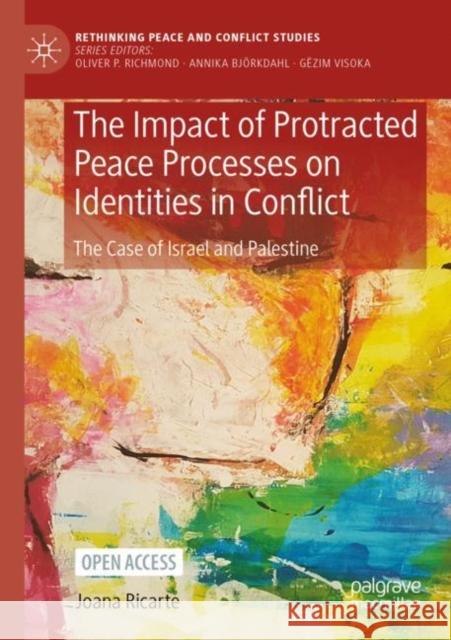The Impact of Protracted Peace Processes on Identities in Conflict: The Case of Israel and Palestine » książka
The Impact of Protracted Peace Processes on Identities in Conflict: The Case of Israel and Palestine
ISBN-13: 9783031165696 / Angielski / Miękka / 2022 / 256 str.
The Impact of Protracted Peace Processes on Identities in Conflict: The Case of Israel and Palestine
ISBN-13: 9783031165696 / Angielski / Miękka / 2022 / 256 str.
(netto: 153,68 VAT: 5%)
Najniższa cena z 30 dni: 154,18
ok. 22 dni roboczych
Bez gwarancji dostawy przed świętami
Darmowa dostawa!
This open access book discusses the impact ofprotracted peace processeson identities in conflict. It is concerned with how lingering peace processes affect, in the long-term, patterns of othering in protracted conflicts, and how this relates with enduring violence. Taking Israel and Palestine as a case study, the book traces different representations of success and failure of the protracted peace process, as well as its associated policies, narratives, norms and practices, to analyze its impact on identity and its contribution to the maintenance and/or transformation of the cultural component of violence. On the one hand, drawing from an interdisciplinary approach comprising International Relations (IR), History and Social Psychology, this book proposes an analytical framework for assessing the specificities of the construction of identities in protracted conflicts. It identifiesdehumanizationand practices of reconciliation in ongoing conflicts – what is calledpeace-less reconciliation– as the main elements influencing processes of othering and violence in this kind of conflicts. On the other hand, the book offers an empirical historical analysis on how the protracted peace process has impacted identity building and representations made of the ‘other’ in the case of the Israeli-Palestinian conflict since the end of the 19thcentury to the present day.
This open access book discusses the impact of protracted peace processes on identities in conflict. It is concerned with how lingering peace processes affect, in the long-term, patterns of othering in protracted conflicts, and how this relates with enduring violence. Taking Israel and Palestine as a case study, the book traces different representations of success and failure of the protracted peace process, as well as its associated policies, narratives, norms and practices, to analyze its impact on identity and its contribution to the maintenance and/or transformation of the cultural component of violence. On the one hand, drawing from an interdisciplinary approach comprising International Relations (IR), History and Social Psychology, this book proposes an analytical framework for assessing the specificities of the construction of identities in protracted conflicts. It identifies dehumanization and practices of reconciliation in ongoing conflicts – what is called peace-less reconciliation – as the main elements influencing processes of othering and violence in this kind of conflicts. On the other hand, the book offers an empirical historical analysis on how the protracted peace process has impacted identity building and representations made of the ‘other’ in the case of the Israeli-Palestinian conflict since the end of the 19th century to the present day.











